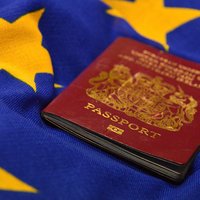Establishing Digital Product Passports
Wuppertal Paper presents current solution approaches to the digital product passport for the establishment of a circular economy

Wuppertal Paper presents current solution approaches to the digital product passport for the establishment of a circular economy

With the help of a so-called "digital product passport," the components, materials and chemical substances as well as information on reparability, spare parts or proper disposal for a product can be summarised. It is suitable for all products and services as well as foodstuffs and also on particularly resource- and energy-intensive goods, such as information and communications technology with high energy and material consumption.
The digital product passport will be more important for products with complex compositions than for products with few components. This will help to prevent negative environmental impacts and optimise recycling. Therefore, many activities are currently being planned to introduce digital product passports (DPPs). However, only a few DPPs have made it into practice so far, so there is some uncertainty about what impact DPPs will actually have in the future.
In the current Wuppertal Paper "Current approaches to the digital product passport for a circular economy," the team of authors from the Wuppertal Institute gave a structured overview of the current development of digital product passports and provide an insight into 76 current corporate, political and research activities around the DPP and its goals. The authors have defined 13 criteria to provide a comparable description, categorisation and evaluation. In this way, the authors would like to encourage feedback and contributions from the DPP community and motivate valuable discussions with and among experts. The overview of DPP initiatives is also intended to help promote and facilitate the adoption of digital product passports for the circular economy by facilitating collaborations and suggestions for further activities.
This working paper was partially created within the CEWI project – Circular Economy as a Driver of Innovation for a Climate-Neutral and Resource-Efficient Economy – (Grant-No.: 67KE0075C), funded by the Federal Ministry for the Environment, Natural Conservation, Nuclear Safety and Consumer Protection (BMUV) based on a Decision of the German Bundestag.
